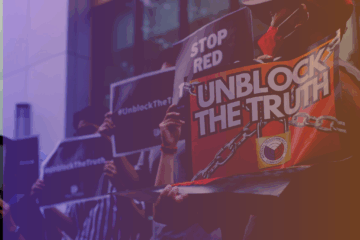Digital Laws Reshaping PH Cyberspace: The Internet Transactions Act

Continuous Rise of E-commerce
While scrolling through social media, it is not uncommon these days to come across advertisements from seemingly well-known stores promoting products with unbelievably huge discounts only to find out that these are impersonators tricking you into entering your bank details and credentials on their fraudulent websites.
Those are just one of many instances of online scams, reported to be the most common cybercrime in the country with over 15,000 incidents. Their prevalence has become concerning, especially since the COVID-19 lockdowns 4 years ago triggered a significant rise in e-commerce globally. The Philippine e-commerce market sales for 2021 reached $17 billion and $20.1 billion in 2023. By the end of 2024, sales are projected to reach $24.1 billion, and this upward trend is predicted to continue in the years to come. The growth in the digital economy stresses the need for more active involvement of regulatory institutions, especially with the increasing rate of cybercrimes which endanger both businesses and consumers engaged in online transactions. Given these circumstances, it can be assumed that many of us know at least one or two people who have witnessed or even experienced getting scammed online. Moreover, technological advancements and evolving business models necessitate significant policy changes in the country to ensure a safer and better cyberspace.
On Regulation
The E-commerce Act of 2000 was one of the first laws relevant to the country’s digital world. Some notable laws that followed were the Data Privacy Act and the Anti-Cybercrime Act, both enacted in 2012. Among these few cyber laws, the Internet Transactions Act of 2023 (ITA) is the latest addition, enacted to regulate the country’s e-commerce. It aims to “promote and maintain a robust e-commerce environment” by enhancing the trust between online businesses and consumers, and also serves as a complementary law to the Consumer Act. This essentially seeks to get rid of scams and other fraudulent activities on the internet by holding online platforms and sellers more liable and accountable. The establishment of an E-commerce Bureau under the Department of Trade and Industry is one of the provisions of the ITA, with the purpose of overseeing the implementation and the development of e-commerce, among other regulatory tasks.
The ITA, published in December 2023, set a transitory period of 18 months, meaning that by June 2025, online businesses and digital platforms must make the necessary adjustments to comply with the law and avoid penalties. The question at the moment is whether online businesses are already aware of the changes they must make and, if they are, what hindrances they encounter so far in relation to compliance.
The E-commerce bureau is tasked to do the following: (a) enforcing registration of online businesses and digital platforms, (b) establishing an Online Business Database consisting of online businesses’ contact information for both government and consumers, (c) develop an E-commerce Philippine Trustmark to signify reputable businesses, and (d) facilitate an Online Dispute Resolution System as an alternative mode of settlement between conflicting parties.
Ups and Downs
There were several bills which the ITA of 2023 superseded. Recalling the comments made by a social development organization in 2021 regarding bills that preceded the Internet Transactions Act, Bayan Academy’s criticism that it ‘lacks teeth‘ still applies to the Act, as it fails to address two mentioned issues: MSMEs’ struggles in adopting E-commerce and the country’s weak ICT infrastructure. Although regulation is indeed needed to protect consumers, the group also emphasizes the need for a supportive environment for online businesses.
Moreover, the group’s recommendation for a trustmark seems to have been approved, as its development is now a provision in the Act. This highlights the significance and contribution of non-governmental organizations in influencing policymakers. Another concern from the past was expressed by Lazada when CEO Alimurung requested to soften the liability clause of a similar preceding bill.
The same concern can also be said about the liability clauses of the ITA which, as Alimurung emphasized then, may lessen seller responsibility while creating extensive liability on digital platforms resulting in higher platform costs that can pass on to MSMEs. However, it is through this provision under the ITA that the government was recently able to order a crackdown on uncertified and illegal vape products from e-marketplaces and digital platforms in early July this year due to public health concerns.
Another recently issued regulatory measure pursuant to the ITA is evident under the Bureau of Internal Revenue’s Revenue Regulations (RR) No. 15-2024 last August 15 which requires registration of all persons engaged in business, both offline and online. This RR is also in line with the Tax Code, and it further prescribes policies and guidelines in said mandatory registration as well as the administrative sanctions and criminal liabilities for non-registration.
On the other hand, agencies such as the Cybercrime Investigation and Coordinating Center (CICC) plans to invoke the ITA to take on legal action against social media platforms for hosting scammers. Social media giants dealing with charges will serve as a valuable lesson for them, demonstrating that they are still subject to local laws and not above them. A notable example is South Korea’s legal actions against Meta for failing to meet its obligations to establish measures or remedies to prevent consumer harm, as stated in their own E-commerce law. Aside from social media giants such as Meta and X, other multinational E-retailers and E-marketplaces can now also be held liable and accountable. If users in the Philippines can register accounts on their websites and these entities have already established a legal presence in the country, such as an office, this means they are purposefully availing themselves of the Philippine market, which subjects them to local Philippine laws, specifically the Internet Transactions Act, according to lawyer and ICT legal expert Jamael Jacob.
Future of Cyberspace
Given the increasing regulation of the digital world, one may assume an even more regulated internet in the future, but it is important to look back at the origins of the internet to see which events seem to have shaped what was then the future and is now our present, and to compare them to present events and efforts aimed at shaping our future. One of the first uses of the internet, aside from military purposes in the 50s, was primarily for communication and sharing of information. Commercialization of the internet was set into perpetuity in the late 90s or 2000s which caused an irreversible paradigm shift that embeds cyberspace into the real world, which is why it makes sense for real world laws to apply and tailored regulations be formulated, however this comes at a price of the philosophical foundation that the internet was built upon the idea of “a free and open” digital space that Wikipedia co-founder Larry Sanger once envisioned as the future of the internet.
Taking into consideration the evolution of the internet and the current situations such as the continuous growth of E-commerce and prevalent cybercrimes, the Philippine government has implemented the National Cybersecurity Plan which may pave the way for Senate Bill 1738, known as the E-governance Act which aims to fully utilize ICT for government services, leading to the digitalization of the government. It is important to note that previous administrations have made efforts in the digitalization of the government, but issues with implementation arose. Therefore, the question now lies in the current administration’s performance in implementing these regulatory plans, especially with the Internet Transactions Act of 2023 that aims to combat online scams and fraudsters. Are online businesses made aware of this Act? Were they informed of the transitory period? What obstacles were met in their efforts to comply with this Act? Questions like these from the public are necessary to demonstrate that implementation or execution of the law is given importance and valued by the people.
Although the Philippines is only beginning to implement more regulations for the internet, there is an international concern about internet fragmentation. This happens when there is too much regulation or there is a difference in regulations among countries, it disrupts the borderless nature of the internet, leading to significant changes in user experience, privacy, the innovation the internet offers, etc., which could result in another paradigm shift. Either way, gradual changes in how we use the internet in the country can be expected and it might happen sooner than we think.
Aside from the enhanced trust between online businesses and consumers the ITA offers, there will be more issuances of similar regulatory measures pursuant to the Act as it is seen to be laying the groundwork for new regulations including ones relevant to taxation. If the government is to impose taxes on digital services in the near future, the Act would complement the implementation of such taxation in different ways such as the close monitoring enabled by the mandatory registration, and the administration of the E-commerce bureau over online businesses. On the other hand, the ITA enabling strict implementation of the imposition of digital taxes will lead to higher costs for businesses and in turn, higher prices for consumers. It is only a matter of time before changes will be seen, but the question is, for the general public, to what extent will such changes be considered beneficial or detrimental; liberating or restrictive?
This blogpost was written by FMA intern Diego Gonzales.



0 Comments